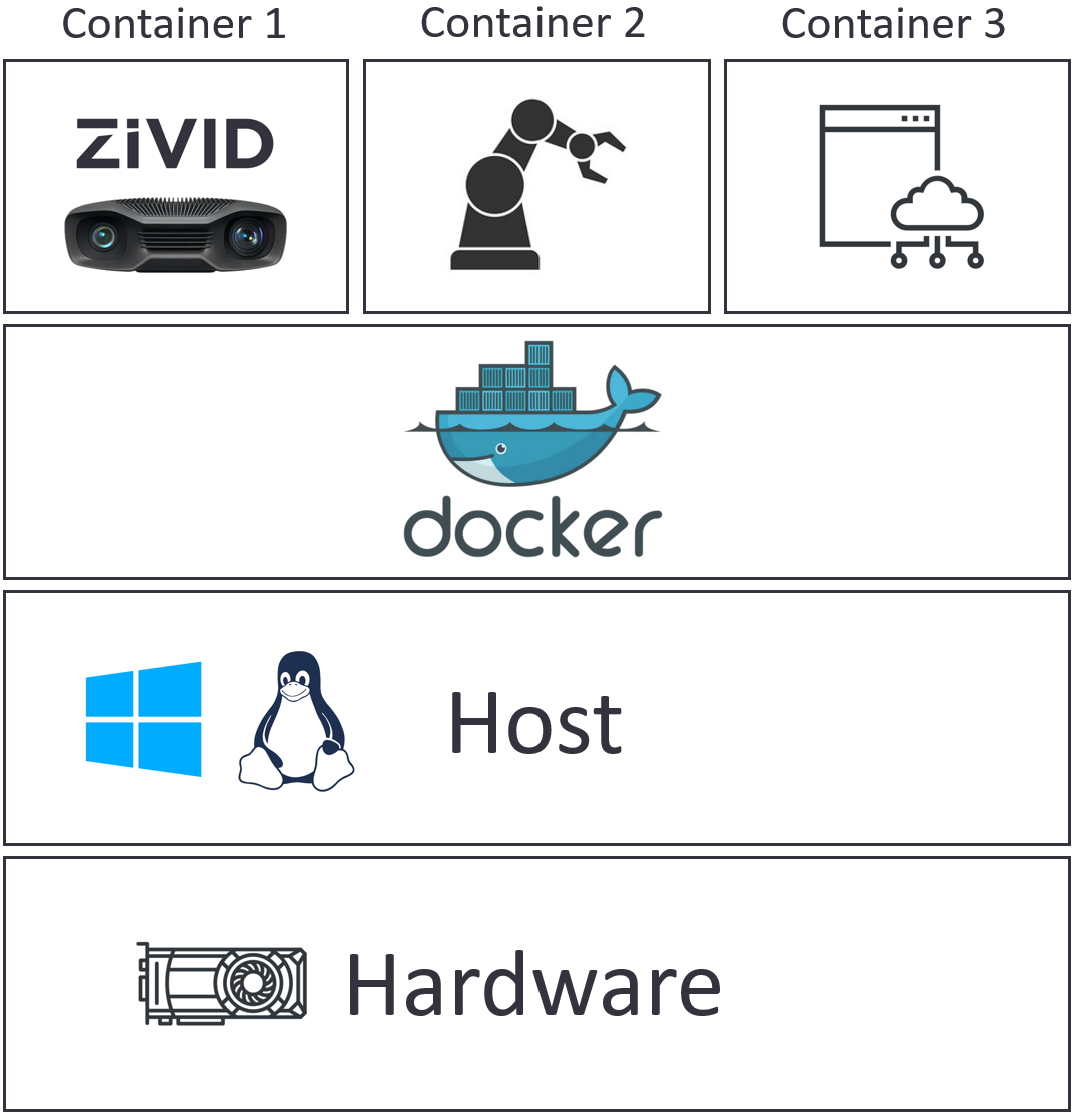Docker
Docker is a platform for developing, shipping and running applications in containers. These are lightweight, isolated environments that package an application and its dependencies, making it easy to deploy and run across different computing environments.
These pages describe how you can use Zivid in Docker and why it can be useful for your application. If you want to dive straight into setting up Zivid with Docker, see the following pages:
Benefits of a containerized application
Docker containers encapsulate the application, along with its dependencies, into a single package. This has multiple benefits, but most importantly it ensures that the application runs consistently across different environments. You as a developer can then create containers on your local machine and be confident that the same container will work in production.
It also makes it easy to change, update or in any way modify a dependency without having to reconfigure the whole system. Take the example below, where the application interfaces a Zivid camera, a robot and logs data to the cloud.

A new version of the Zivid SDK is available with new features and enhancements, but it is costly for you to upgrade a single package. Using Docker with the setup above, Zivid software is contained only within its container. You can then keep the other containers untouched, and only update a single container without further configuration.